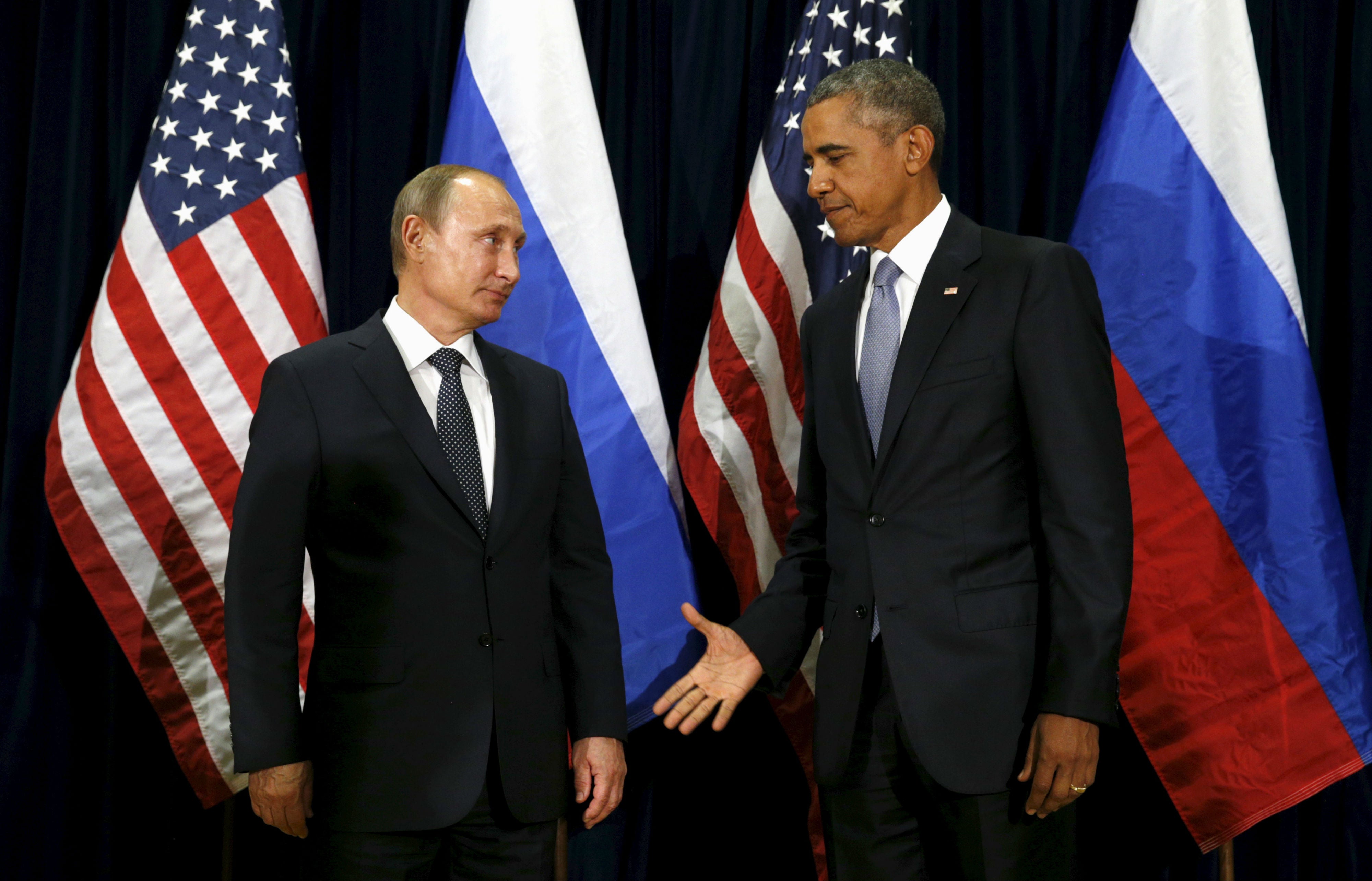Why the US probably should have seen Russia's air strikes in Syria coming
Russia hinted it would launch Syrian air strikes in days before it attacks

When it comes to strategy in Syria, Vladimir Putin is now in the driving seat. Russia has launched air strikes in Syria to the apparent surprise of the Americans.
But they shouldn't be that surprised.
According to the Kremlin, the Russian strikes were aimed at Isis. But evidence is increasingly emerging that they had struck other rebel groups as well, especially those which posed an immediate threat to the Syrian regime’s forces. The Russians can point out, however, that the Americans did the same when they started their air strikes against Isis last year, bombing Jabhat al-Nusra, which, although linked to al-Qaeda, was allied to a number of other opposition groups.
Nevertheless, Mr Obama and his officials should, perhaps, have seen this coming. Reconnaissance flights by Russian drones flying out of Latakia, a stronghold of the Alawite community from which the Syrian President, Bashar al-Assad, and the country’s ruling elite are drawn, have largely been over areas controlled by rebel groups, some backed by the US and its allies, rather than Isis-held territory.
The Russian strikes follow the much-anticipated meeting between Barack Obama and Mr Putin at the UN in New York, which took place with international action expected to be ratcheted up in Syria.
There was not much camaraderie between the two with the US President giving his Russian counterpart a steely look and a very perfunctory handshake. Their talk was described by Mr Putin as “surprisingly frank” which is diplomatic language for a pretty robust exchange.

There was debate about who had won on points at the UN.
But Mr Putin has moved forward quickly and aggressively. He has emphatically acted on behalf of his ally, Bashar al-Assad, while Mr Obama is accused by Syrian rebels, even the moderate ones Washington subsidises, of letting them down.
The presence of advanced Russian aircraft in Syria also means that demands by Turkey, a key Washington ally, to establish a no-fly zone across its border in Syria will not be met. An American backed safety zone of the same size, without the no-fly proviso, may still be established, one waits to see Washington’s reaction if the Russians bomb rebels in that enclave.
Join our commenting forum
Join thought-provoking conversations, follow other Independent readers and see their replies
Comments
Bookmark popover
Removed from bookmarks